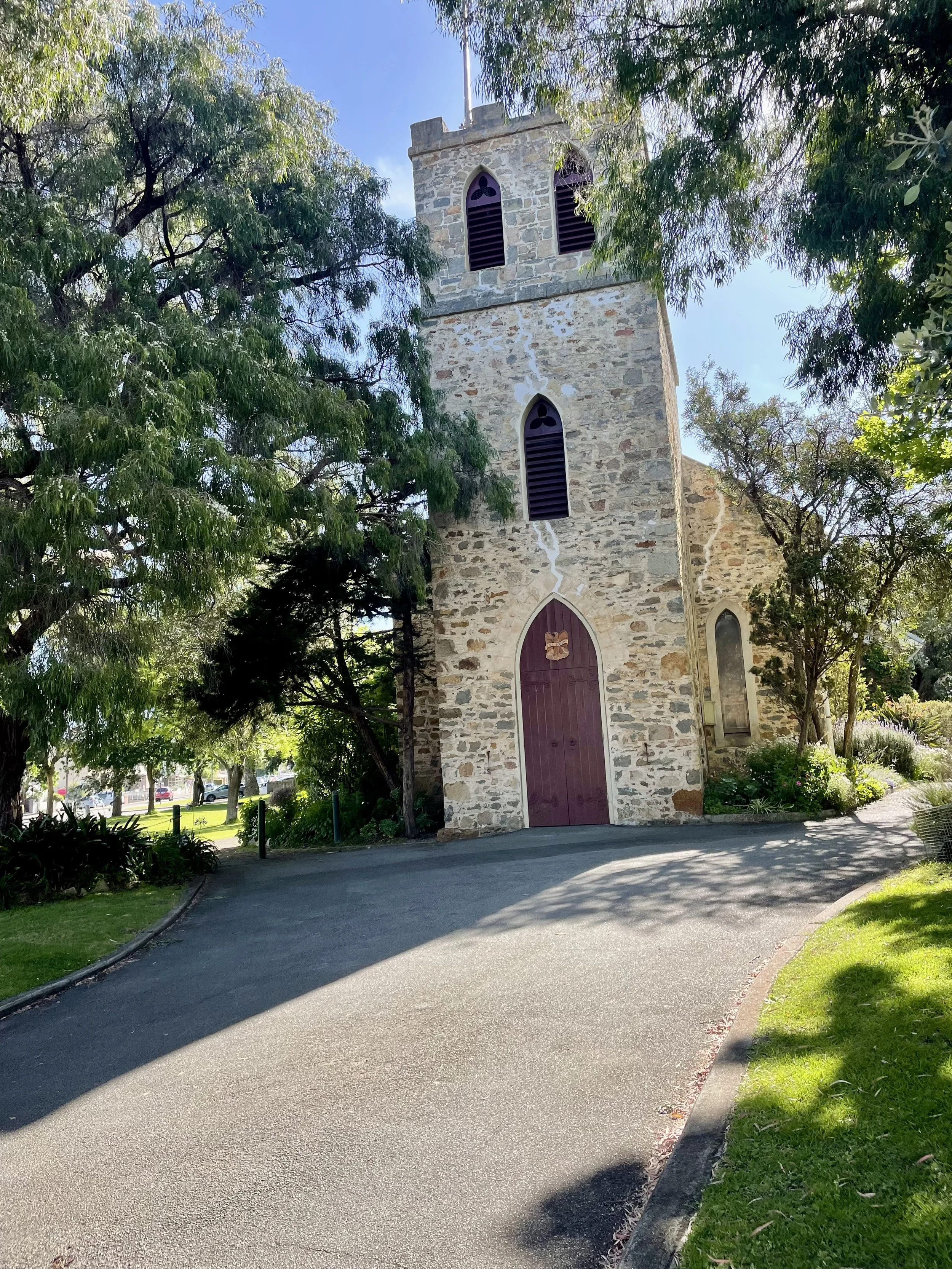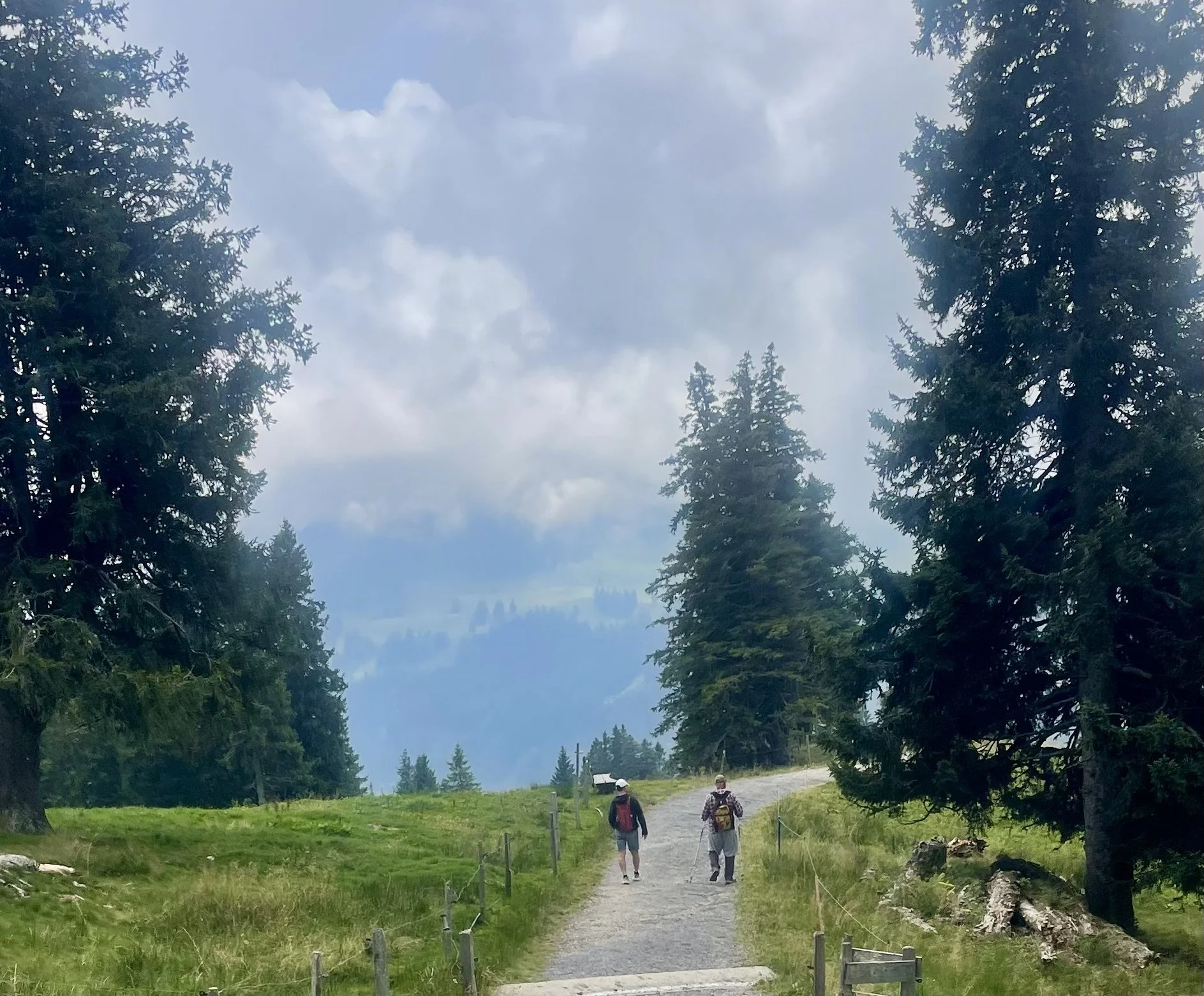Our typical Malaysian break comprises of a mixture of R&R – rest and religious activity. We have travelled to the Island of Penang perhaps 20 times over the years. The year of this particular sojourn is 2018, and we feel a stronger sense of missional purpose. Some years, we only want to hide, swim, and eat Laksa. This year, we come flaunting our pastoral badges and agree on a plan to be ‘available’ – cue appropriate worship song – we are ready for whatever and whoever comes our way.
This night is typical—a quickly organized trip with few details. We don't know where our friends are taking us or what to expect. We have been friends with Pastors Ann and Antony for many years, and we trust their judgement and respect their expression of faith. It's not exactly our expression, but together we make up an eclectic team. Earlier we taxied from our hotel to a hawkers style restaurant where we met up with our friends and shared coffee and Roti Canai. Most events in Penang begin and end with food. We are surprised they bring their grandsons, and we all pile into their car. Antony explains they are planting a church up north and tonight is a gathering for prayer and fellowship as a first step.
We should have known it would be a long night when we stop at a Caltex gas station for snacks after an hour on the road. The little boys return with sweets, and Master Chef sips on a cup of coffee from a gaudy paper cup. Think 7-Eleven Malaysian style, except those vile rolling sausages are replaced with chilli-flavored rolling wieners. Same all over the world. It is already dark, and we are en route to a house church meeting. We veer back onto the four-lane highway northbound towards the Thai border.
We arrive about 2 1/2 hours later in a small town. We are welcomed into a home sparse and barely furnished. The walls appear to be newly painted in a light blue-green, and the ceilings are high. A fan stands in one corner, working to keep the room cool. We are led to the kitchen where a few women hover around the stove, cooking up a big pot of Bee Hoon noodles as well as some sort of sticky fruit jelly dessert served in plastic cups. Master Chef connects with the cooks and offers encouragement. Lots of laughter. We recognize the mother and kids that live here. She leads the music team at Antony's church in Penang. With newfound respect, it dawns on me that she must be travelling so far to join that service each Saturday evening. What commitment.
We start with worship led by a couple of the children on a keyboard and bongo drums while our host receives calls on her phone and races off to collect neighbours on her scooter. She returns now looking nervous as the room swells with families and children. Pastor Anthony scolds her for not providing enough chairs.
An obviously disturbed woman and her mother join us. The daughter periodically cries out and rocks back and forth while her mother comforts her. A sick older man has to be carried in from the car. We meet neighbours, family and church friends. Most people stand around the edges of the room, and children sit cross-legged on the floor. Sort of awkward in a typically Malay kind of fashion.
We are asked to 'bring a word.' Be ready, in all seasons.
Chef chose to wear his Cargo shorts and a tank-top. A culturally dumb choice. Pastor Antony introduces him with a joke about the attire, and the crowd loves it. He probably tells them that this big white man can be trusted even though the tattoos, shorts and shaven head are not the standard dress code for pastors. Antony warms up the crowd as he can do so well. We see the faces recognizing that this is one of their own. He is loud, direct and engaging. He translates the message that Chef shares. At the conclusion, we pray for all those that come forward for a blessing while the songs from the beginning repeat. We feel welcome and respected despite the tatts and our whiteness.
We worship. We pray. We eat Bee Hoon. And the jelly cups.
As we depart, the woman, who had demonstrated such disturbing behaviour, motions to me by patting her head. 'She wants you to pray for her,' urge the others. She is calm as I pray. Fear leaves her just for a while. Within a few minutes, she is rocking and screaming, and the host struggles to place her and her mother on the back of her small scooter to drive them to their nearby house.
We pile into our car, weary after the service. The noodles sit heavy in our bellies, and I regret drinking three tall glasses of tea. The children are exhausted. The youngest boy, Jordan, has been coughing all night. He doesn't seem well. Already the life of service and ministry is being built into the young boys. They don't complain.
Our friends drop us at a huge McDonald's near their home in Penang. I had suggested stopping there for the free Wi-Fi. This causes confusion. Why here? Do you want fries? A thick shake? No, I just want to get home now! I need the Wi-Fi so I can call an Uber to get us back to our hotel. Everyone is cranky with me, including Chef. I can’t see the point of Antony driving us 45 minutes out of his way with a sick child. It is already after 1 a.m. I get my way and Hännes and I Uber back to Gurney Drive.
We enter our hotel at about 2 am as a Chinese wedding is just wrapping up. The gaudy Christmas snowy castle in the huge marbled foyer looks even more out of place than usual. Wedding guests in black tie dress wait for their taxis in the lobby, and the band is loading up a minivan outside. I am greeted with a sincere 'Welcome Back, Mrs Hannes.' The handsome bellman is sporting a red cap with gold trim, his uniform clean but showing signs of its hundreds of washings. His hand moves to the white gold buttoned jacket in a chest salute as he welcomes me and opens the big glass doors to the lobby. I wondered where he thought we had been on this Saturday evening. He probably imagines we were coming back from a flash restaurant in one of Georgetown's hotels, or perhaps we had booked a car and driver to go across the bridge to sample the seafood delights at a remote restaurant outside of Butterworth. How could I explain the long journey up the coast to speak to a group of locals and the noisy ministry time? Even I found it peculiar.
The lobby is cool and spacious. It would have had a sense of luxury about 30 years ago, but now the dark wood everywhere makes it heavy and dated. The latticed doors of the British-style pub are uninviting. We love its slightly off-prime feel, and the nightly price is excellent. The marbled atrium with a never-used grand piano creates a feeling of quiet and a reprieve from the still, humid air outside and the noise of traffic moving along the Drive.
The brown leather couches and the centre glass table topped with a giant urn filled with fresh flowers flank the Front Desk. The evening staff have their heads down, most likely looking through check-in data for the following day. It is a familiar and restful place for us. We have been coming to this same 3-star hotel for many years.
We are exhausted.
We are still doing this stuff. Acting it out. The big white Evangelists. After all these years and the prodding of the gentle ghost. After all the changes and the misgivings, all the re-evaluations, and the denials. After all the hurt and tossing. The book burning. We remain true to this. True to a message. Now it is many years hence, and I'd do the same thing all over again. The Bible remains relevant. Amidst all the damage to that book, it is a good read. The Good Book. Remarkable.
It remains to be seen how I will view this story of the long night in Malaysia, let's say, in another five years.
I put my faith to bed that night. Washed off the daily grime. Moisturized with self-respect. I knew that by dawn, I would be refreshed and ready to meet the new day. The failures and heartaches are not gone but quietened as God does his work, and I breathe the cleanse of another night's sweet rest.













